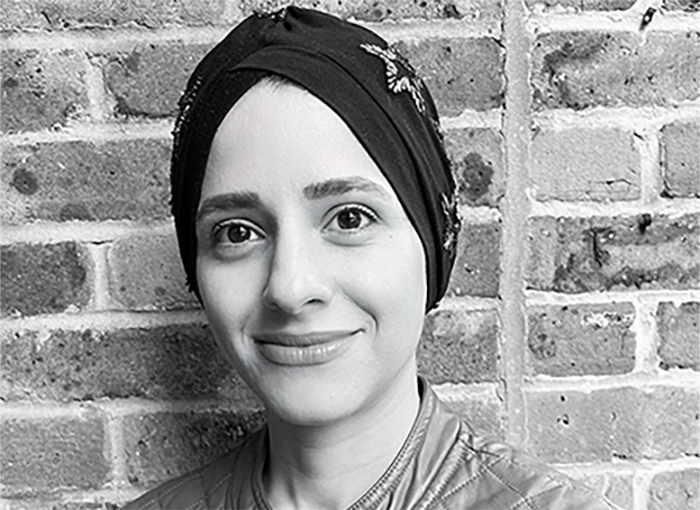
In the latest instalment of our Staff Profile series, we spoke to Dr Fatemeh Geranmayeh, Clinical Scientist Fellow in the Department of Brain Sciences, about her career and research interests.
Introduce yourself – who are you and what do you do?
I’m an MRC-funded Clinician Scientist. I lead the Clinical Language & Cognition Group (CLC) and I’m interested in investigating post-stroke language and cognitive impairments. I’m also a Neurology consultant and run a specialist vascular cognitive clinic at Charing Cross Hospital.
When did you join the College, and where were you working before this?
My first association with the College dates back to 2000 when I first embarked on my undergraduate medical studies. I then completed the long journey of clinical specialist training (National Hospital for Neurology and Neurosurgery, Imperial NHS Healthcare Trusts, University College London Hospitals) interspersed with various research fellowships funded by the NIHR, Wellcome Trust and internal Imperial College Fellowships. My current five-year position started in January 2021 and is funded by the MRC.
Can you explain a bit more about your research interests and the projects you’re currently working on?
Currently, I have just rolled out a multi-modal clinical study that tracks longitudinal cognitive and language recovery after stroke along with a number of novel blood biomarkers and brain imaging. We use a self-administered online cognitive tool tailored specifically for post-stroke-deficits, to track recovery (Ic3study.co.uk). This aim is to deliver this at scale and at low costs in clinical settings.
What initially sparked your interest in your current field of research?
I have always been fascinated by cognitive neuroscience. Stroke is a very common disease affecting one in three of us. Cognitive and language disorders are the most debilitating symptoms for patients following stroke with very little successful therapy available. So, there are lots of questions to be asked, and discoveries to be made.
What’s the most challenging part of your role?
Balancing clinical work with research, and trying to carve some time in between for a busy young family.
Last year, you were selected to participate in the Academy of Medical Sciences’ SUSTAIN programme, which supports female scientists in developing their careers and as senior leaders. How has the programme benefitted you and your work so far?
This was a competitive program that was aimed at building research groups, management, leadership and communication skills through a series of very well run workshops. It was great to be amongst peers from different fields and institutions who were at the same career stage as me and to exchange ideas.
Where do you see yourself in five years’ time?
I want to be running a successful and supportive research lab that’s is internationally respected for its research output and locally valued for its positive culture.
What are your biggest hobbies/passions when you’re not busy at work?
In the post-children era, my hobbies have changed from playing classical piano and oil painting to playing nursery songs and doing arts and crafts with my six-year-old daughter, and twin boys aged two. All very enjoyable still.
And finally: what’s one thing you’d like staff in the Department to know about you or your role that we haven’t already covered?
I am very keen on cross-disciplinary collaboration, which is where most innovations are made.